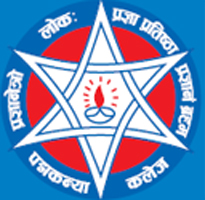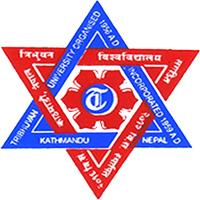Overview
MA in Anthropology at Tri-Chandra Campus, Ghantaghar, Kathmandu (affiliated with TU)
The Master of Arts in Anthropology at Tri-Chandra Campus, affiliated with Tribhuvan University (TU), is a comprehensive postgraduate program designed to provide an in-depth understanding of human societies and cultures and their evolution. The program combines theoretical knowledge with practical research, emphasizing the study of cultural diversity, social structures, and human interactions. It is tailored for students exploring anthropological perspectives and methodologies for addressing complex social issues in contemporary and historical contexts.
Program Duration
The MA in Anthropology program is two years long and is divided into four semesters. Each semester includes core and elective courses, research methodology training, and a final thesis project. The structured academic timeline ensures a balanced approach to learning and specialization.
Eligibility Criteria
To enroll in the MA in Anthropology program at Tri-Chandra Campus, applicants must meet the following requirements:
-
A Bachelor’s degree in Anthropology, Sociology, or a related discipline from a recognized university.
-
Obtained minimum CGPA of 2.0 or second division in the undergraduate program.
-
Candidates from other disciplines may need to complete prerequisite courses determined by the campus.
Admission Process
-
Application Submission: Complete the application form, available online or at the campus admission office.
-
Entrance Examination: Students must take the entrance test conducted by Tribhuvan University. The test assesses knowledge of anthropology, social science concepts, and research skills.
-
Merit-Based Selection: Admission is granted based on performance in the entrance exam and academic records.
-
Document Verification: Submit required documents, including academic transcripts, citizenship proof, and letters of recommendation.
-
Enrollment: Confirm admission by paying the required fees and completing the registration process.
Course Outline
The curriculum is designed to provide students with foundational and advanced anthropology knowledge. Below is a detailed course breakdown:
Year 1, Semester 1:
-
Foundations of Anthropology
-
Research Methods in Anthropology
-
Anthropological Theory I
-
Practical: Ethnographic Fieldwork
Year 1, Semester 2:
-
Social and Cultural Anthropology
-
Biological Anthropology
-
Anthropological Theory II
-
Practical: Case Studies in Anthropology
Year 2, Semester 3:
-
Development Anthropology
-
Political Anthropology
-
Elective: Medical Anthropology or Urban Anthropology
-
Seminar: Current Issues in Anthropology
Year 2, Semester 4:
-
Dissertation/Thesis
-
Economic Anthropology
-
Elective: Environmental Anthropology or Linguistic Anthropology
-
Internship/Practical Field Engagement
Subjects Offered
-
Foundations of Anthropology
-
Research Methods
-
Anthropological Theories I & II
-
Social and Cultural Anthropology
-
Biological Anthropology
-
Development Anthropology
-
Political Anthropology
-
Economic Anthropology
-
Medical Anthropology
-
Urban Anthropology
-
Environmental Anthropology
-
Linguistic Anthropology
Program Objectives
-
To provide advanced knowledge of anthropological theories, concepts, and methodologies.
-
To develop skills for conducting ethnographic research and analyzing social phenomena.
-
To foster critical thinking for addressing global and local socio-cultural issues.
-
To equip students for careers in academia, research, and development sectors.
-
To promote interdisciplinary approaches to understanding human diversity and social structures.
Teaching Methodology
The program employs traditional and innovative teaching methodologies, including lectures, case studies, group discussions, and workshops. Students engage in practical learning through ethnographic fieldwork, community-based research, and internships. Faculty members emphasize interactive learning and integrate modern tools and technologies to empower students’ understanding of complex anthropological concepts.
Learning Outcomes
Graduates of the MA in Anthropology program will:
-
Demonstrate a comprehensive understanding of anthropological theories and practices.
-
Conduct independent ethnographic research and analyze socio-cultural data.
-
Apply anthropological insights to address real-world challenges in diverse contexts.
-
Communicate effectively in academic and professional settings.
-
Develop critical and analytical thinking for interdisciplinary research.
-
Contribute to sustainable development and policy-making processes.
Future Scope
The program prepares students for advanced academic pursuits, such as a Ph.D. in Anthropology or related fields. Graduates can specialize in sub-disciplines like medical anthropology, urban anthropology, or environmental anthropology, contributing to global research and knowledge.
Career Prospects
Graduates of the MA in Anthropology program can pursue careers in:
-
Academic and Research Institutions
-
International Development Agencies
-
Non-Governmental Organizations (NGOs)
-
Government Policy and Planning Departments
-
Cultural Resource Management
-
Corporate Social Responsibility (CSR)
-
Media and Journalism
-
Museums and Heritage Conservation
Scholarship Opportunities
Tri-Chandra Campus offers scholarships for academically outstanding and economically disadvantaged students. Additional scholarships are available for marginalized communities and students meeting specific government or institutional criteria. Candidates are encouraged to make inquiries during the admission process.
Fee Structure
Tribhuvan University determines the tuition fees, which are subject to periodic revisions.
Extracurricular and Co-Curricular Activities
Students engage in anthropology forums, cultural exchange programs, and academic conferences. These initiatives provide practical exposure, foster leadership skills, and provide networking opportunities with professionals in the field.
Real-World Application
The program emphasizes practical applications through internships, fieldwork, and community-based research. Students analyze real-world issues like cultural preservation, social inequality, and human rights, applying anthropological concepts to develop actionable solutions.
Sustainability and Social Impact
The curriculum integrates sustainability concepts, training students to design projects that balance socio-economic growth with cultural and environmental preservation. Graduates contribute to creating inclusive and sustainable societies.
Skill Development
The program focuses on critical skills, including ethnographic research, qualitative and quantitative data analysis, cultural sensitivity, and effective communication. Students also develop problem-solving and project-management skills for diverse professional roles.
Global Perspective
Courses on globalization, migration, and cultural diversity equip students with a global perspective. The program prepares graduates to address international challenges and contribute to global research and policy initiatives.
Facilities and Support
Tri-Chandra Campus provides well-equipped classrooms, a resourceful library with access to anthropological journals, and modern research tools. Students also benefit from academic counseling, mentorship programs, and career guidance services, which ensure a supportive learning environment.
Why Choose an MA in Anthropology?
This program offers an interdisciplinary approach, combining rigorous academics with practical applications. It prepares students to tackle complex socio-cultural challenges, fostering critical thinking and innovative solutions. The emphasis on research and fieldwork makes it a valuable choice for aspiring anthropologists.
Is the MA in Anthropology Right for You?
This program is an excellent fit if you are passionate about understanding human cultures, social dynamics, and global diversity. It provides a comprehensive education that combines theory, research, and practical experience, catering to diverse academic and professional aspirations.
What is the Future of the MA in Anthropology?
The demand for anthropologists is growing as societies navigate cultural transformations, globalization, and sustainable development challenges. Graduates will play pivotal roles in addressing these issues, contributing to academic and professional advancements in anthropology.
How to Improve Your Study of Anthropology Education
To excel in anthropology, actively engage in fieldwork, ethnographic research, and community projects. Collaborate with peers and mentors to deepen your understanding of anthropological concepts. Read academic journals and workshops and stay updated on global trends and issues. Practice cultural sensitivity and empathy to work effectively with diverse communities.
Conclusion
The MA in Anthropology program at Tri-Chandra Campus offers a holistic education in understanding and addressing socio-cultural complexities. The program prepares graduates for impactful academic, research, and social development careers by integrating rigorous academics with practical applications. Whether pursuing further studies or professional opportunities, this program equips students with the knowledge and skills to make meaningful contributions to society.
Contact Tri Chandra Multiple Campus's administrative office for detailed information on the MA in Anthropology course, including fees, scholarships, facilities, counseling, eligibility criteria, etc.

















